#imminent pizza >>> current penis
Explore tagged Tumblr posts
Text
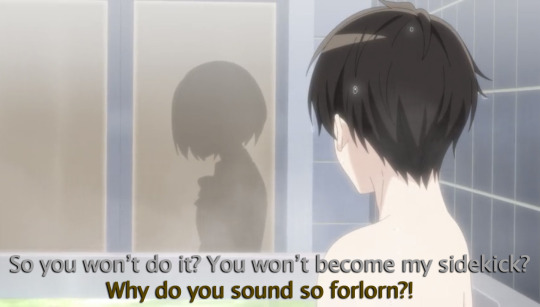
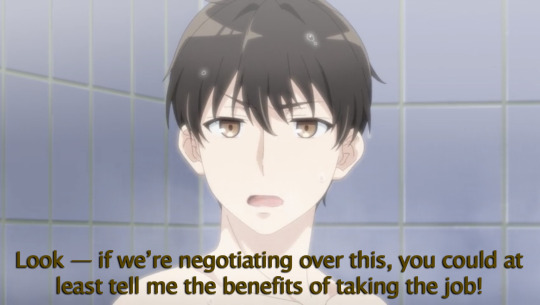
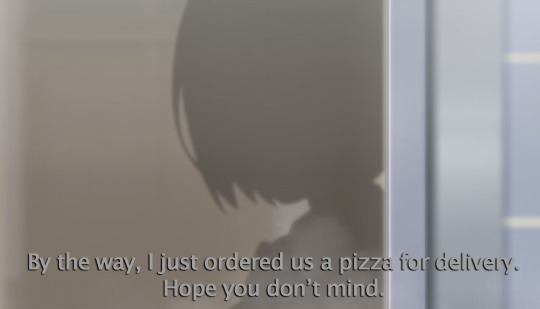


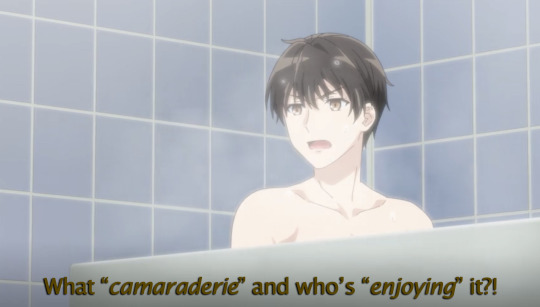


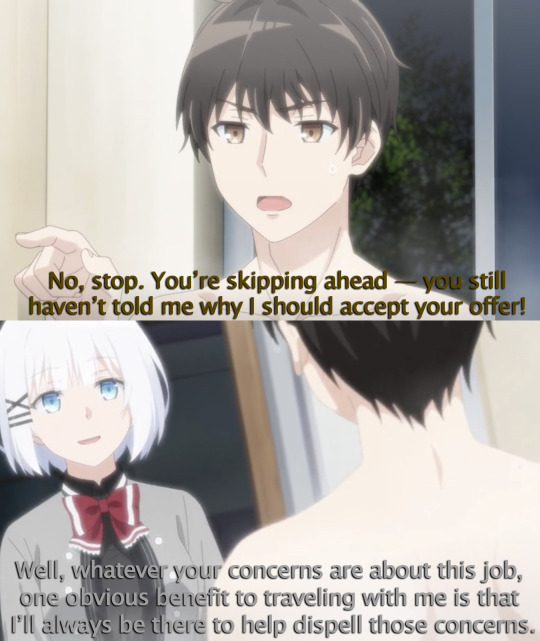


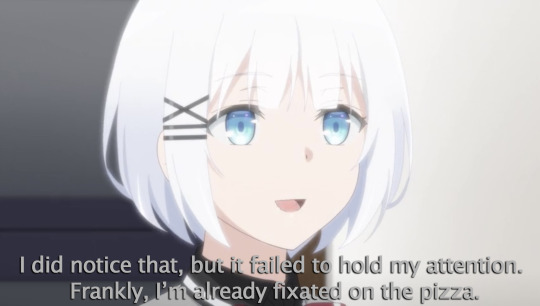
Siesta says "Imminent Pizza >>> Current Penis"
#the detective is already dead#anime screencaps#detective siesta#siesta#Kimihiko Kimizuka#anime#banter#pizza >>> penis#imminent pizza >>> current penis#Tantei wa Mou shindeiru
9 notes
·
View notes
Text
Balls
Sometimes, when I close my eyes, I’m nine years old again. Simon and I got to stay up way past our bedtime to watch the World Series between the Cincinnati Reds and the Oakland A’s. No one outside Ohio thought the Reds had a chance against the likes of Dave Stewart and Dennis Eckersley on the mound, or Mark McGwire and Jose Canseco at the plate. Against the odds, the Reds swept the A’s in four games, just as the A’s had swept the Giants the year before.
If I’m really lucky, I can see Todd Benzinger drifting into foul territory behind first base that night in Oakland, and squeezing the final out to complete the sweep. One of the happiest moments of my young life. I consider myself very fortunate to have lived to see the team I grew up with win it all.
And the 1990 world championship belongs to the Cincinnati Reds!
Maybe I’ll remember that night for the rest of my life simply because I was alive to see it. As the foul ball began its descent toward Benzinger‘s glove, my memory was making its own engrams instead of picking from my grandfather’s recollections of seeing Frank Robinson get beaned in the head during an exhibition game, or the Big Red Machine winning back-to-back World Series in 1975 and 1976. Grandpa’s still salty the Reds traded Robinson to Baltimore on December 9, 1965, the very day Branch Rickey died. Every Scioto County schoolkid knows Branch Rickey signed Jackie Robinson (who broke Major League Baseball’s color barrier in 1947) to his first Major League contract. Mr. Rickey deservedly has his place on the Portsmouth floodwall, whose murals draw visitors from all over the country to learn about the history of my hometown and its surrounding areas.
If Marty Brennaman’s voice brought nine-year-old me joy one magical night from a baseball diamond three time zones away, Paul Tagliabue’s brought me pain on the gridiron for a decade from much closer to home. I still consider one of most disgusting sentences in the English language to have been spoken when, as commissioner of the National Football League (NFL), Mr. Tagliabue said:
With the sixth pick in the 1992 NFL Draft, the Cincinnati Bengals select David Klingler, quarterback, University of Houston.
To be fair, this entire sentence wasn’t as cringeworthy as English’s only eight-letter expletive, *ichigan, but it was close. I still swore at the TV the moment Ki-Jana Carter’s knee exploded on the turf of the Pontiac Silverdome (in *ichigan) just three years later, but even that terror was just a flash in the pan compared to the utterance of the Klingler selection and its consequences.
Just a year before, I’d gotten to form my own Bengals’ engrams when a few players came to Grant Middle School in Portsmouth to play a charity basketball game against a group of Portsmouth All-Stars. My hometown team did have a former NBA player on its roster, but the final score still favored the visitors from Cincinnati. Somehow, the Bengals managed to have more success on the hardwood than they were having on the gridiron in those days. At halftime, I got to go out onto the court and stand in line for autographs from the Bengals’ players. I shook James Brooks’ hand. It was my first experience with fantasy football (not the kind where you assemble a roster and get pretend points if your players do well).
Just like Benzinger’s catch added something of my own to the Reds’ lore I’d grown up with, watching professional football players from my favorite team play a different sport was my own day in Bengals’ history. I no longer believed that since a quarterback from tiny Augustana College, Ken Anderson, led the Bengals to Super Bowl XVI after the season of my birth (1981), their return to the big game would mean my death was imminent. They played in Super Bowl XXIII seven years later and I turned out alright, but I don’t want to press my luck.
It was as if James and the other players had stepped straight out of my TV. Maybe my memories of the game and getting their autographs explain why I took the Klingler pick so personally. It wasn’t just that it set the franchise back for years, it delayed my transition to puberty by at least six months. Once I’d had the chance to form my own football memories, I was all-in. I no longer needed Sam Wyche to remind me that I didn’t live in Cleveland to get fired up. I kept the autograph page in a chest in my room for years. I wasn’t even a fan of the University of Kentucky (UK), but the chest was a gift, an unmistakably UK blue gift. At the time, no one noticed (neither did I) that the Wildcat’s tongue looked like a penis. Maybe this was foreshadowing of the eggplant emoji incident.
As kids, Simon and I would watch Bengals games with a level of anticipation much greater than they deserved. We wore Bengals sweaters when they were on defense, and pulled them over our heads to reveal #7 Esiason jerseys when they were on offense. I lived and died with the professional teams from Cincinnati, and the largest colligate one from Columbus, the Ohio State Buckeyes.
As I write, the Bengals are wrapping up another game I’m not watching, the football Buckeyes are just hours away from learning their fate in this year’s College Football Playoff, and the Reds are in the midst of another offseason of change. The Bengals are dealing with a rash of injuries, so their season hasn’t exactly been a return to prominence. The Buckeyes trounced the team up north again. The Reds were out of the race by May 1st last season, and will probably experience a similar fate for years to come. I’m not terribly concerned with the outcome of any of the three scenarios, but I wish I could pinpoint the sequence of events in my childhood that caused me to develop an almost pathological level of emotional attachment to these teams that continued well into my adult life. Why could Marty’s voice send my spirits soaring, Mr. Tagliabue’s crush them, and Carmen Ohio make me cry? Are there consequences of such attachment to Chronic Traumatic Entertainment? Why did I invest so much of myself in the flight of such distant balls; balls whose trajectory should not have impacted my own, no matter where they, or I, landed?
Maybe familiarity does breed contempt. It’s possible that my attachment began unwittingly, like most compulsions. The Reds, Buckeyes, and Bengals were simply available in my childhood home. Every run, first down, or touchdown flooded those around me with endorphins. I wanted to feel good, too. Every strikeout, penalty, or missed field goal seemed like the end of the world. The highest of highs. The lowest of lows. Owing to chemical reactions in my brain, and physical reactions within my body, I began to believe that when my team won, I won. When they lost, I lost. It seemed only natural. As a child, it never occurred to me to question why I felt the way I did while watching college students and grown men play children’s games.
Another explanation could be that I put myself in the shoes of the athletes I saw on television. There must be some reason I still can’t bear to watch Desmond Howard strike the Heisman pose after scoring a touchdown against Ohio State in 1991, yet I still recall a commentator’s line of, “(Craig) Yeast! Rising!” as he raced toward the end zone for the Bengals. People naturally want what they see every day, or every weekend in the fall.
Perhaps the urge is more primal than I’d realized. Sports can easily be seen as a form of combat. Since most of the arts of war are frowned upon in modern times unless very specific sets of circumstances apply, the us vs. them conflict that’s the very essence of sport could easily be viewed a substitute for a species’ struggle to survive, a struggle in which everyone wants to align himself or herself with the winners. This is not to suggest that modern man has forgotten what it means to face adversity, but that most in the western world live with a level of comfort and convenience unparalleled throughout human history. It’s possible that man still instinctively hears the call of battle, but he must heed it differently when faced with the option paralysis of the current age.
My ancestors had to hunt, kill, and cook their food almost every single day of what was probably a miserable existence without modern dentistry. I, on the other hand, once became violently ill because of spinach on a pizza that was delivered to my door ready to eat. All I had to do was open my door, then the pizza box, a truly a modern take on fruit of the vine and work of human hands. Drinking water fortified with fluoride was unknown to my ancient ancestors, who surely didn’t worry about having aesthetically pleasing teeth. Me? The next time I get to treat myself to a tube of toothpaste, I’ll have hundreds, if not thousands, of options. Is it any wonder that with so many choices to dull the senses, man decides to occasionally indulge in watching modern-day gladiators do battle according to rules that vary based upon the game?
Even as I went through what I thought was a phase of indifference toward sports, I knew if I turned on the television and promised myself I’d watch just one more half-inning, or one more two-minute drill, I was lying. There would always be one more. In a way, my indifference masked a deep-seated jealousy of the money, fame, and recognition afforded to athletes. It wasn’t that I hated them for doing what they did. I just knew I couldn’t do the same, and considered myself inferior because of it.
As for the college kids, I’m now twice as old as an incoming freshman. Screaming, “Get ‘em boys!” has lost its appeal. It seems both voyeuristic and unwise to spend time focusing on a child’s game played by older children and young men.
Recently, I’ve had a bit of a change of heart. Doing something I enjoy, like writing this, has given me an opportunity to rethink my position when it comes to the flight of balls distant and inconsequential. I’ve thought about the work any athlete has to put into his or her craft. If he or she is willing to pay the price to play their sport at a high level, perhaps the spoils are warranted, excessive though they may be.
Today, the biggest lesson I take from sports is neither jealousy of those who play, nor joy at achieving a goal I thought we shared. I’ve learned that anything worth doing takes great effort, focus, and dedication. I’ll keep my memories of Todd’s catch, James’s autograph, and even a phallus-tongued Wildcat. But I’d trade it all for a deeper understanding of a person’s path to greatness; the path he or she walks even when the cameras have stopped rolling and the lights have gone out. Understanding is something I gladly invest in. I do so each time I tell a story. Crossing paths with the occasional flight of an inconsequential ball is a small price to pay for such a gift.
Rosters and coaching regimes change with time. Friendships vary in their firmness. The paths and surroundings of sports balls are as unique as the seasons during which the games are played. Baseballs rocket across the outfield grass in the rebirth of spring. Footballs spiral tightly on the gridiron as the season passes from summer heat, to fall chill, then winter cold. Years roll as the boy who intertwines his own fate with that of men he considers heroes becomes a man who felt the strongest of emotions, then nothing, for those same practitioners of the games he once loved.
If joy is something death alone can still, as my Alma Mater suggests, each of us has an obligation to find that which enriches our lives. We must find people, events, and surroundings we enjoy. For some, joy comes from watching games played by humans at various stages of development, for others it comes from playing music, reading, performing, etc.. The possibilities are endless, and that’s the point. Not to focus on the ball itself, or where it lands, but the path it takes.
0 notes